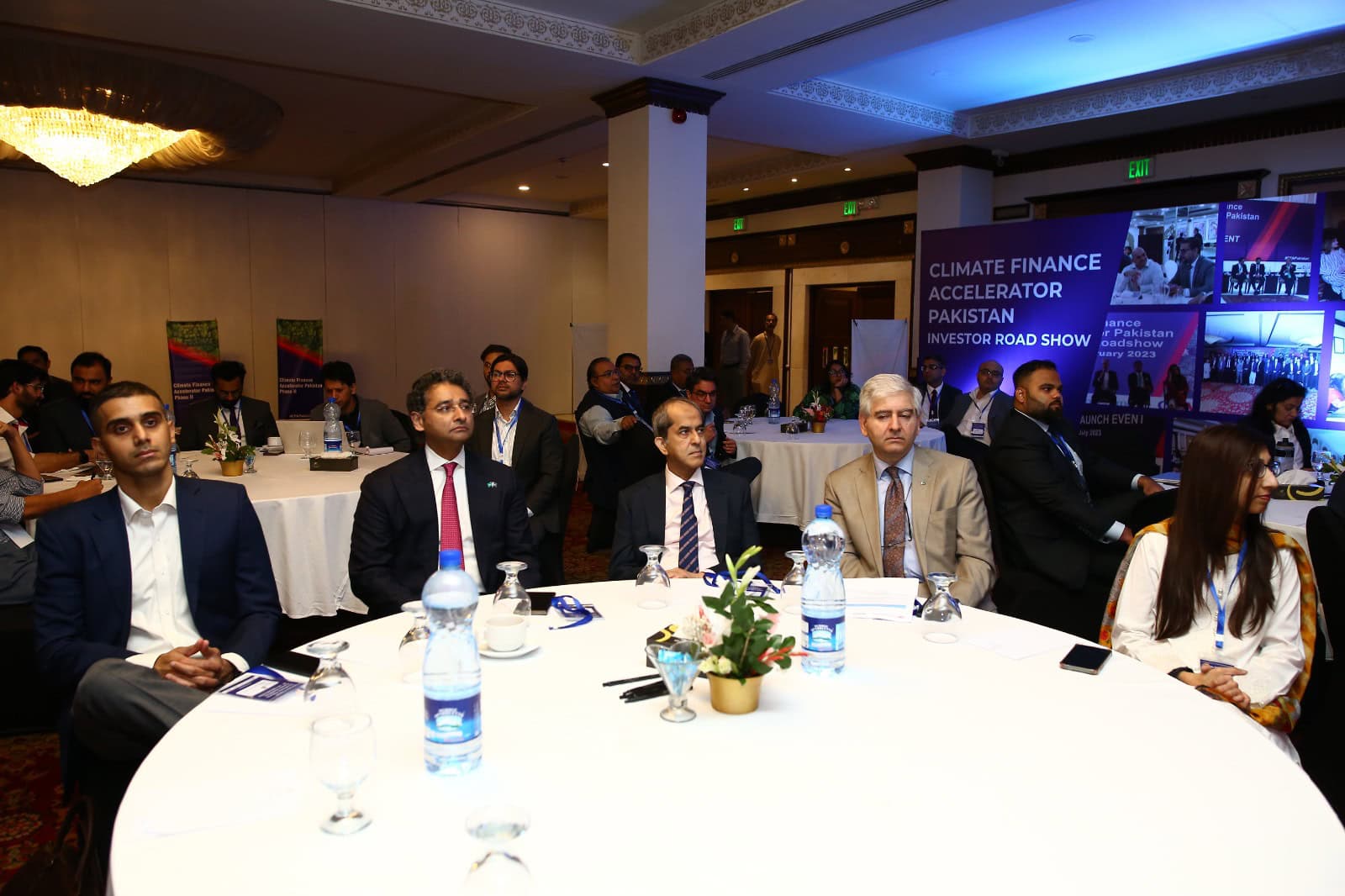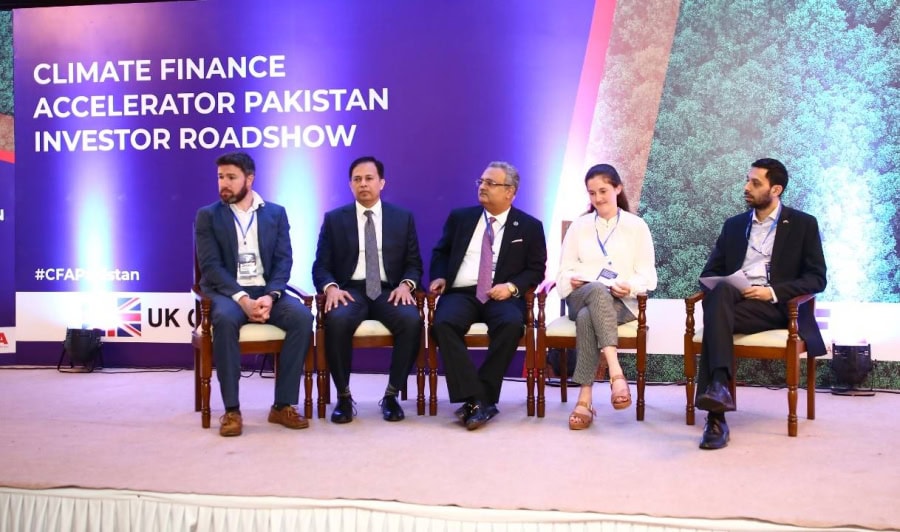KARACHI – United Kingdom vowed all-out support for Pakistan to fight climate change, and now Pakistan Investor Roadshow has started in port city of Karachi showcasing eight climate projects from the agriculture, forestry, waste, and e-mobility sectors to Pakistani investors.
UK-backed project aimed to innovative ideas to mitigate climate change to investors who also provided advice and feedback on the projects.
Each project received months of capacity building from financial, technical and gender equality and social inclusion experts managed by CFA Pakistan’s local delivery partner DAI Pakistan.
British Deputy High Commissioner, Sarah Mooney, underscored the UK’s dedication to partnering with Pakistan in addressing the climate crisis:
“The UK Government is proud to support initiatives like the Climate Finance Accelerator, which play a crucial role in unlocking climate finance and supporting innovative projects in Pakistan. Climate change is one of the defining challenges of our time and the projects showcased today demonstrate the potential for climate action and sustainable development in Pakistan. I hope that they can use today’s event and the training that they have received to help them find investment.”

Najam Shah, Secretary, Forest & Wildlife Department, from Government of Sindh, provided insights into the government’s stance on climate change, emphasizing the need for collaborative efforts between government and non-governmental entities to achieve climate goals.
James Naughton, DAI Pakistan, highlighted the urgent need for action, stating, “Pakistan’s climate adaptation goals require significant investments, estimated at around 14 billion per year. This necessitates an immediate response from both the private and public sectors. The CFA Pakistan Investor Roadshow brings together commercial project developers, financiers, and policymakers to catalyze investments in climate-friendly initiatives.”
The event fosters collaboration between financial experts, investors, and project developers, aiming to accelerate the transition to a low-carbon economy. If funded, these projects have the potential to benefit communities across Pakistan through pollution abatement, employment opportunities, improved energy access, effective waste management, e-mobility solutions, and by promoting gender equality and social inclusion.










